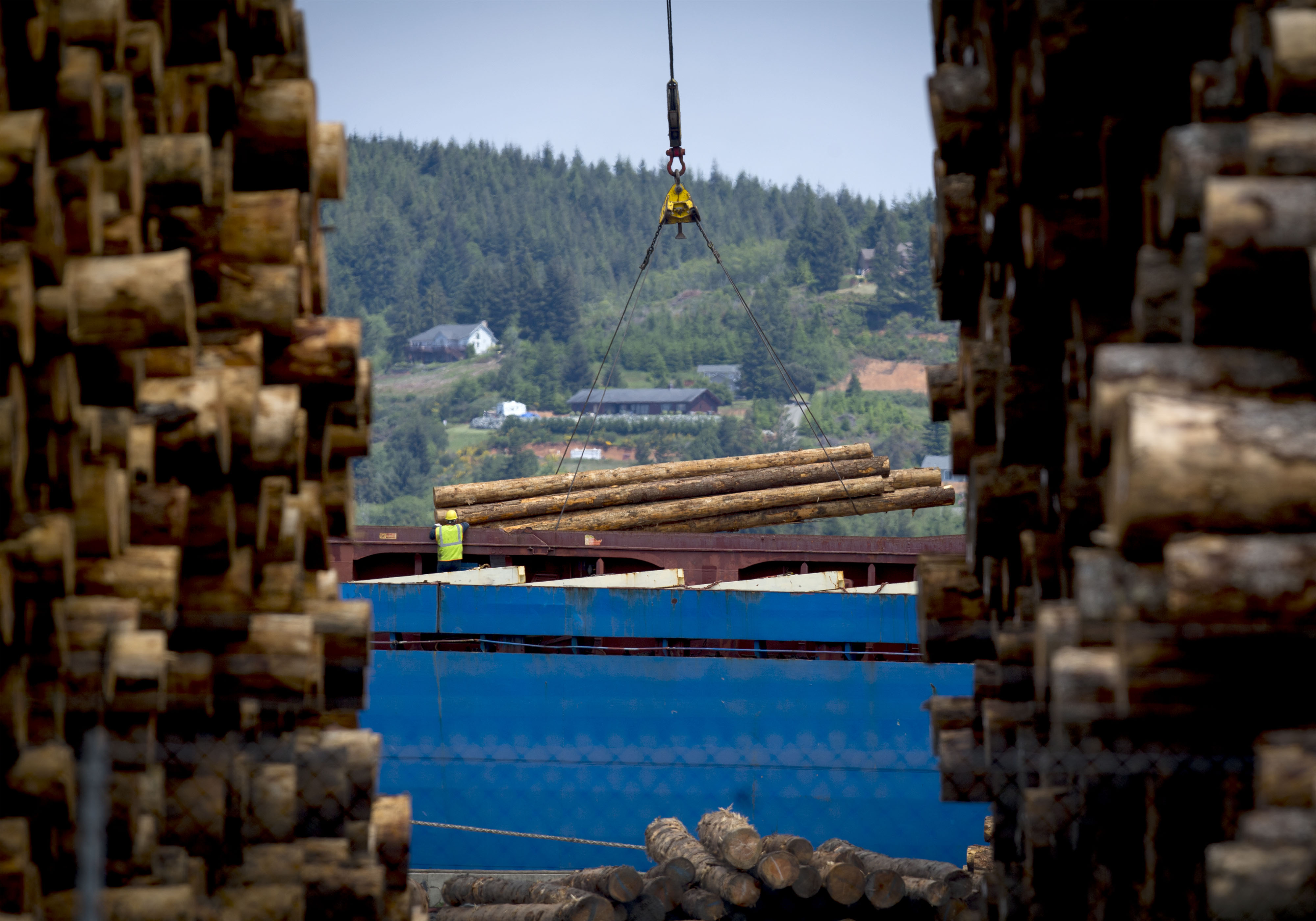COOS BAY — Donnie Turner is a burly man, with a tender heart and pride for the working class.
He's the type of guy you might expect to work in a lumber mill. With a no-nonsense nature, broad shoulders and occasional smile, he's been a mill worker for nearly 18 years at the Georgia-Pacific Wood Products mill in Coos Bay.
But on Tuesday, at age 55, Turner will be out of a job. Georgia-Pacific is closing the mill and laying off its 111 employees. The closure becomes official after Monday, the last day the company will pay the workers, but most stopped working weeks ago immediately after Georgia-Pacific announced the shutdown on April 11. Since then, the mill has become a ghost town, vacant of logs, lumber and people.
"It's hard," Turner said. "It's a transition that I don't think a lot of us were expecting to have to make at this stage in our lives."
For Turner and others in the timber industry who have successfully weathered recessions and shrinking harvests, it remains to be seen if this latest blow to the local economy is an isolated incident or a harbinger of another drastic decline to one of Oregon's signature industries.
Economists watch log prices, harvest levels, lumber demand and other indexes to monitor the health of the timber industry. But mill closures serve as signal flares of turmoil, said Office of Economic Analysis Economist Josh Lehner.
"The biggest issue that we look out for, particularly when it comes to downturns, is basically mass layoff announcements," he said.
Other Oregon mills also have recently closed down or shrunk their workforce. Swanson Group in March shutdown its mill in Glendale, a Douglas County town where the company still has a headquarters. And Portland-based Stimson Lumber announced late last month that it plans to lay off 60 workers. Georgia-Pacific pins its current closure on market conditions — specifically a limited log supply — and transportation troubles.
Although the Georgia-Pacific mill closure won't knockout the local economy, it comes as a gut punch to towns with timber identities, such as Coos Bay, neighboring North Bend and surrounding communities.
"There's a huge impact upon our families and upon our county to lose these kind of jobs," said Coos County Commissioner John Sweet. "It's devastating in a county that's already among the worst eight counties in the state in poverty. So it's a blow to us."
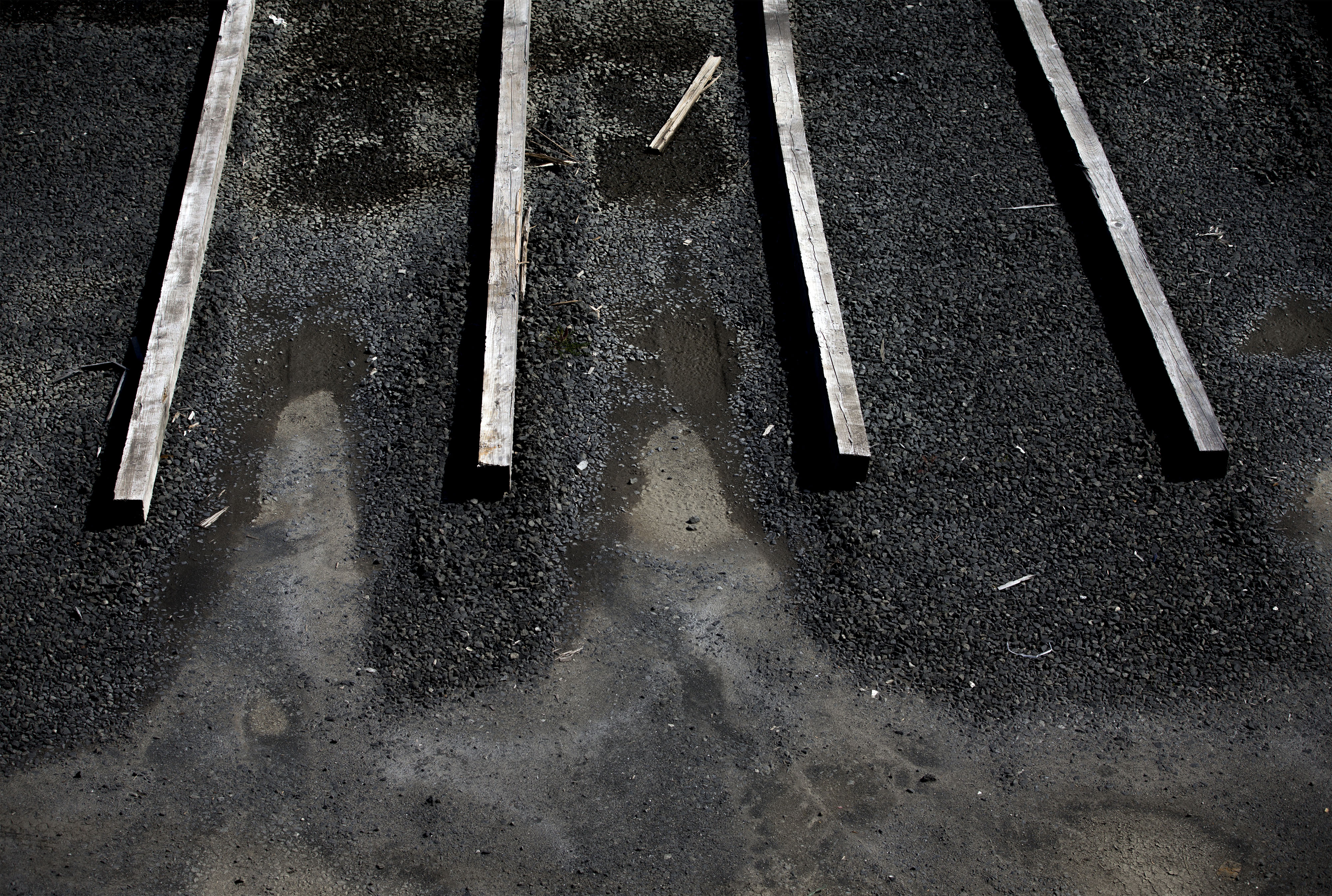
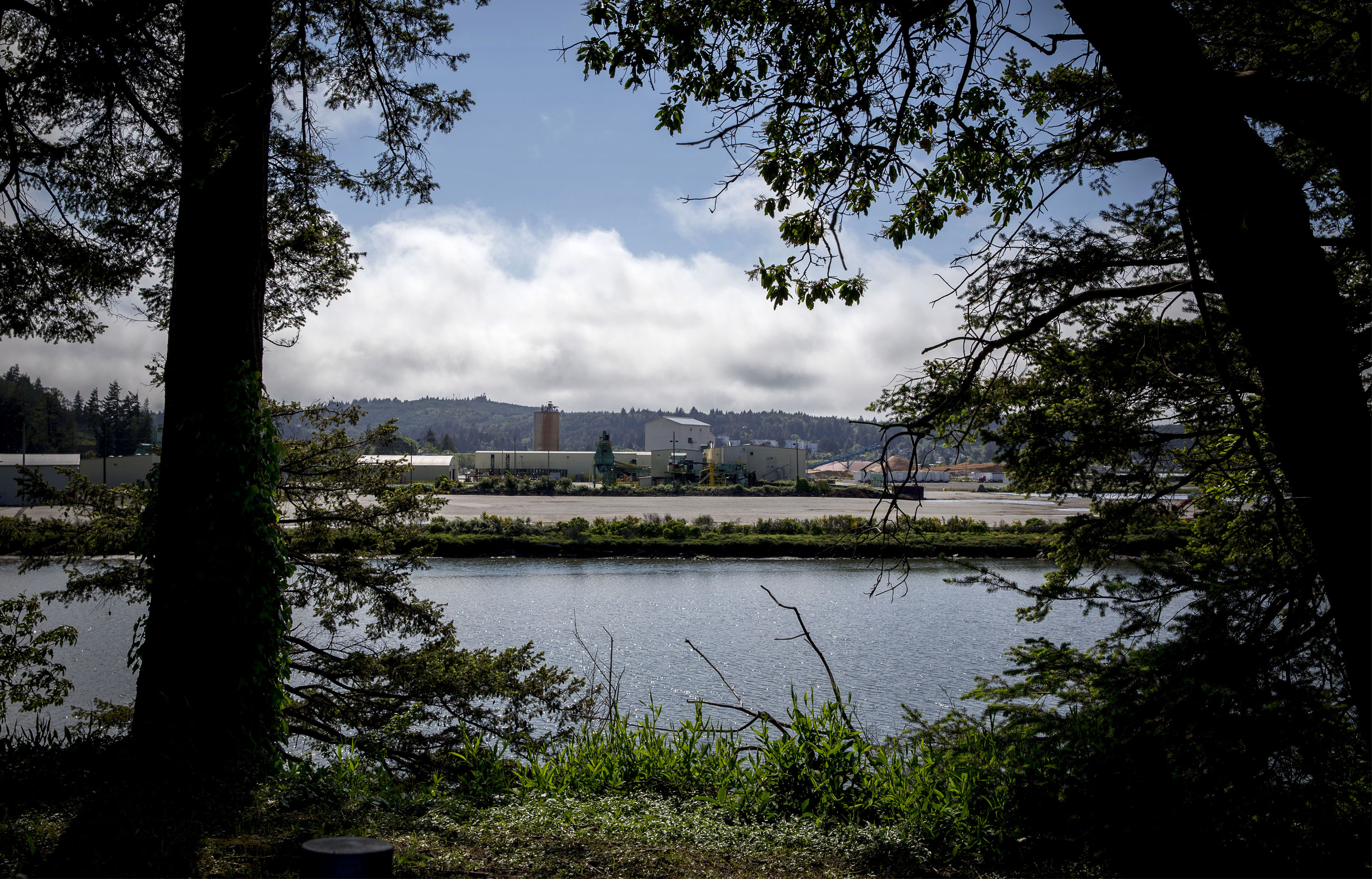
Cause for the closure
Coos Bay, with 16,000 residents, sits on the southern Oregon Coast along Highway 101. It's known for its deep water port, hometown hero and Oregon track legend Steve Prefontaine, and timber. North Bend, adjacent to Coos Bay, has more than 9,000 residents.
Scenes around Coos Bay during a recent work week demonstrated the global economics in play affecting the timber industry. Log loaders and cranes worked as a team at a North Bend dock to fill a massive freighter with logs cut from private land in Oregon that are bound for mills in Asia. Export bans for logs harvested on state and federal land puts the shipping emphasis on private timber. Meanwhile, the Georgia-Pacific mill sat void of logs.
"The closure has been prompted by evaluations that concluded that operating the facility was no longer competitive due to overall market conditions and unreliable — and often disabled — rail service," wrote Bill Goodman, Georgia-Pacific general manager of western lumber. Georgia-Pacific built the mill in 1994, so the closure ends a 25-year run.
Despite the steady stream of logs being loaded onto ships in Coos Bay, log supply was a persistent problem for the mill, some of its workers and local officials said. Few logs were available from nearby public land and privately cut logs fetched a higher price overseas. Environmental restrictions and other concerns have crimped the amount of timber coming from public land near Coos Bay. Recently, they said, the mill's log supply was coming by barge from Canada, but importing the logs didn't serve as a lasting supply solution.
Another factor that affected the Georgia-Pacific mill was a prolonged railroad bridge closure. The Coos Bay Swing Span Bridge crosses the bay, and mills in the area rely on the rail link to haul lumber to market, particularly California for sale to home builders. The Oregon International Port of Coos Bay reopened the bridge in April after a yearlong closure caused by a structural failure. The bridge closure was the most recent lengthy stoppage of trains across the bay.
Typically, about 7,500 rail cars per year traverse the Coos Bay Rail Line, with about 2,000 rumbling across the century-old bridge, said Fiona Bai, port spokesperson. The bulk of those railcars carry lumber.
Georgia-Pacific officials declined to go into the details behind the mill closure, such as transportation problems in Coos Bay.
"As a privately held company, we do not share production numbers, raw material sources, etc.," said Georgia-Pacific spokesperson Rick Kimble.
The desolate mill in Coos Bay is a familiar sight for rural towns in Oregon and around the West that were once dependent on timber.
In the 1970s, there were nearly 1,000 mills in operation around the Western U.S., according to the Western Wood Products Association. By 2010, the number of mills still operating was below 200.
The reasons behind recent mill closures echo past troubles for the timber industry — economic downturns curbing demand for lumber by home builders, as well as fewer and fewer logs available from public land.
As the number of mills drops in Oregon, so does the number of people working in wood products employment. In 1978, there were more than 81,000 people in the industry around the state, according to the Oregon of Economic Analysis. In 2016, the count was down to about 29,000.
Family-wage jobs
A closer look at timber industry figures in recent years in Coos Bay showed signs of an economic rebound, but that was before the Georgia-Pacific mill closure. And, when a mill closes in a rural county it means a loss of quality jobs that pay enough to support a family.
Workers for the Georgia-Pacific mill live in Coos Bay, North Bend and beyond. Some drove nearly an hour to reach their job. The people they worked with and the pay they earned made it worth the commute.
Guy Tauer, a regional economist with the state of Oregon Employment Department who covers Coos County, details trends in Coos County's wood products industry.
Before the Great Recession, in 2006, there were about 900 wood products jobs in Coos County. That dipped to about 600 jobs during the recession and climbed back to around 900 by the end of 2018. "So the county had essentially recovered," Tauer said.
Wood products jobs make up only about 4% of employment in the county. But they are an important component to the Coos County economy because they pay above average, Tauer said. The average wood products job in the county paid about $53,000 per year, compared to about $39,000 for the overall average wage.
So, the challenge for the displaced mill workers is to find employment to match what they're losing.
Standing across the slough from his former workplace, mill worker Turner — who is president of Machinists Local Lodge W261, the mill's union — wondered aloud on a recent Thursday whether he'll be able to stay in the Coos Bay area. He teared up thinking about how hard the predicament is for the single parents among his co-workers. The bulk of the laid-off Georgia-Pacific mill workers don't know what's next for them.
"There's just no jobs here that pay me what I make now," he said. He earned more than $20 per hour, plus regular overtime and benefits.
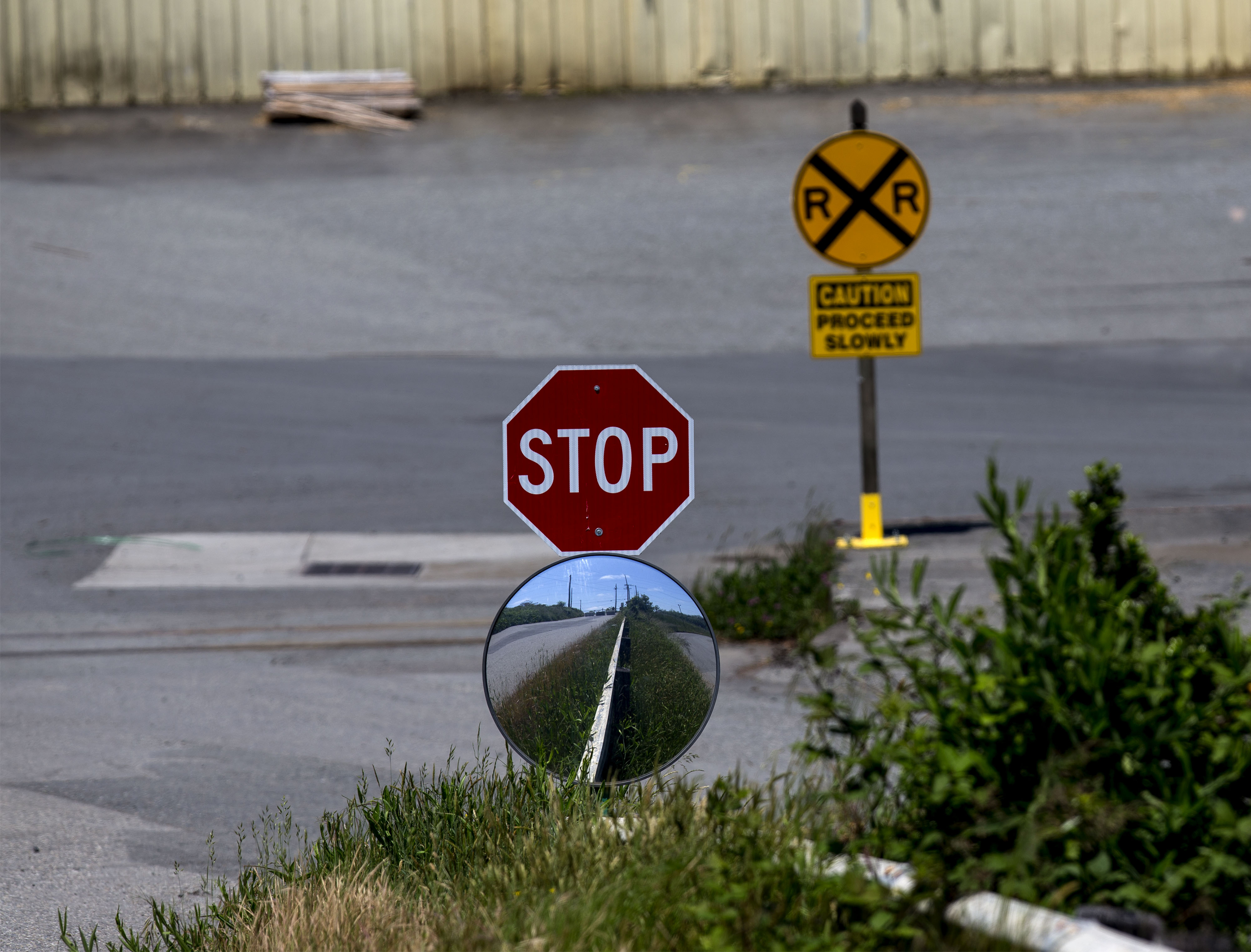
The average hourly wage in Southwestern Oregon, which covers Coos, Douglas and Curry counties, is just over $21 per hour, according to the Oregon Employment Department. But many of the jobs that earn higher wages require advanced degrees or specialized skills.
The mill job allowed Turner and his coworkers to comfortably be part of the county's middle class, earning extra income not consumed by bills, mortgages or rent. They could afford some modest luxuries and the ability to put their kids through college, they said.
"Without family-wage jobs you're just living paycheck to paycheck," Turner said. "I don't need a hundred-and-some-foot yacht, but a 20-foot fishing boat would be pretty nice."
Losing an employer such as a mill has a ripple effect on an economy like Coos Bay. Some of the businesses most impacted are those that support a mill's operation, such as saw sharpeners and equipment supplies. But other businesses will take a hit as well.
The Shake 'N' Burger is a popular local fast-food option close to the Georgia-Pacific mill in Coos Bay. The closure already has had an effect.
"Weekdays have been a little slower for lunchtime," Adrian Mendez-Muth, the front house manager at the restaurant.
What's next?
Like Coos County, the wood products industry in Oregon appeared to have recovered from the Great Recession in recent years.
Harvest numbers are nowhere near the heyday, when upwards of 10 billion board-feet of timber were cut in Oregon during the 1950s, according to data from the Oregon Office of Economic Analysis. But the timber harvest in Oregon has produced about 4 billion board-feet over the past couple of years. Lehner, the state economist, forecasts it to stay near that level over at least the next six years.
The deciding factor in whether the industry forecasts are correct will be the availability of logs. "The log supply is obviously the main issue," Lehner said.
While it's obvious, the issue also is complex. It involves how much logging happens on federal and state lands and depends on whether harvests from private land are exported or not. Plus, there's the question of whether it is worth it for companies to import logs, like how Georgia-Pacific apparently tried to ship in from Canada.
As the timber industry sorts itself out, local leaders in towns such as North Bend try to attract other businesses. The city has economic opportunity zones and urban renewal district, said North Bend City Administrator Terence O'Connor.
But building new businesses or revamping old enterprises takes money.
"That's the toughest part — where do you find the investors?" O'Connor said. "That's what drives the economy."
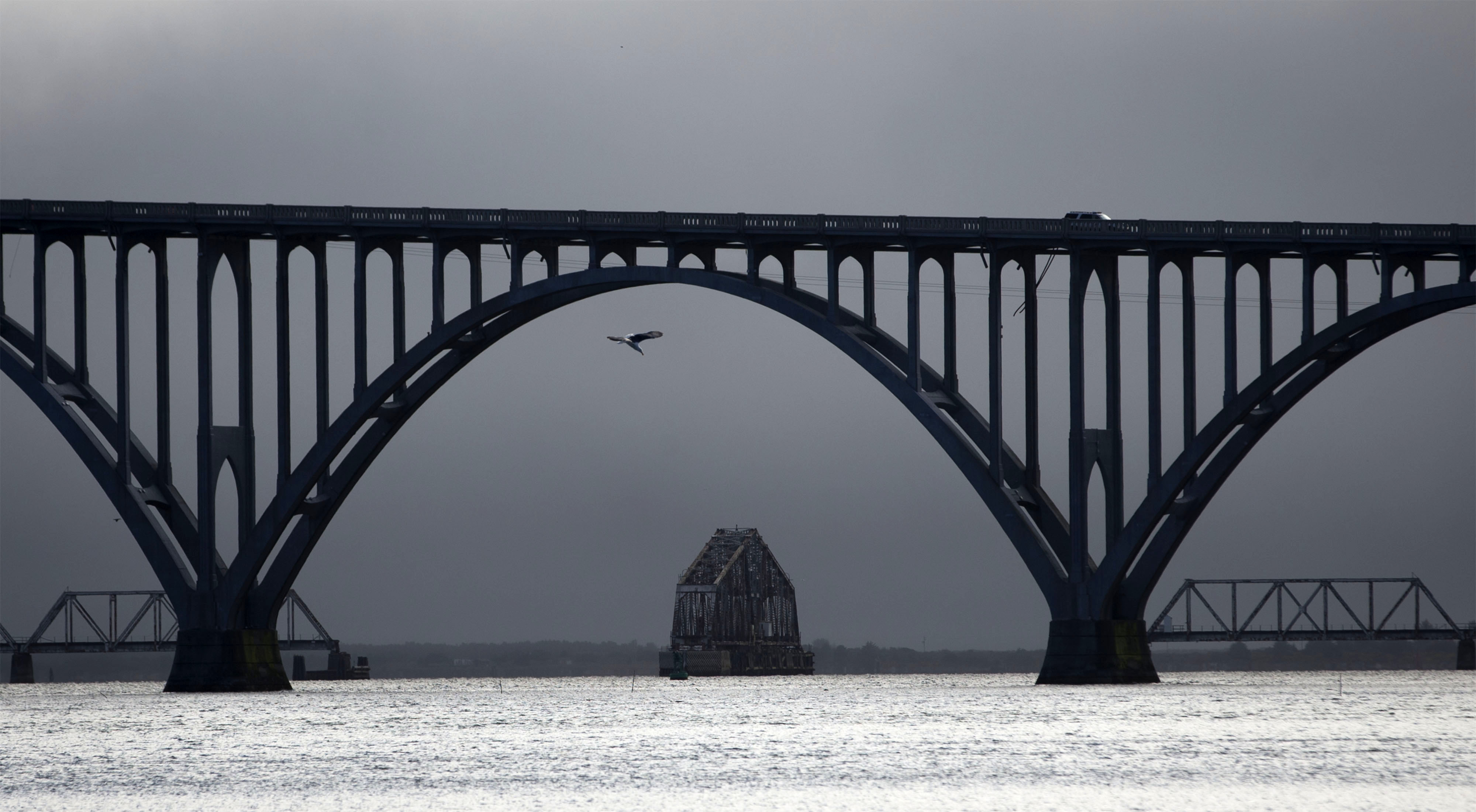
Around Coos Bay and North Bend there are new developments in a diversified economy. In Coos Bay, the 7 Devils Brewing Company offers live music and draws a crowd on weeknights. A waterfront development is in the works between the twin downtowns of Coos Bay and North Bend.
Overall, the local economy is better situated now to absorb a mill closure than it was decades ago, said Timm Slater, (Coos) Bay Area Chamber of Commerce executive director. Slater has lived in the Coos Bay area for 47 years. He also serves on the North Bend City Council and is past president of the League of Oregon Cities.
These days there are more independent businesses, people able to work remotely because of the internet and continued growth in tourism, he said.
But that's not to say the Georgia-Pacific mill closure won't hurt.
"It still affects those that are in the middle of it," Slater said.
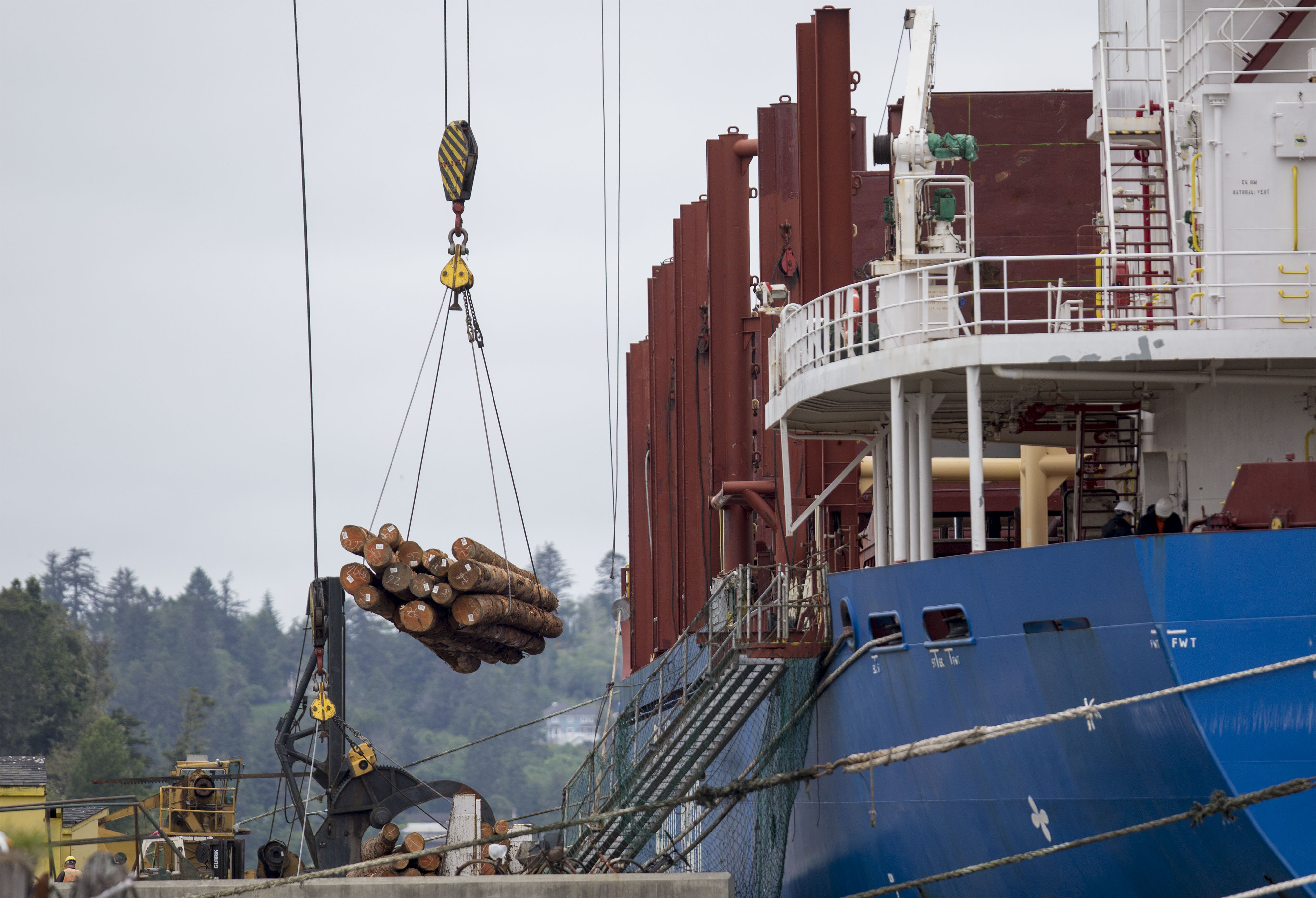
There is a hope hanging around Coos Bay and North Bend. The mill workers and local leaders have it. They hope that someone will buy the Georgia-Pacific mill and restart lumber production promptly, hiring back most if not all of the hundred plus mill workers.
"That's the easiest fix to the thing," Slater said.
Rumors are swirling around the region about interested parties, but there hasn't been a deal yet and it may be a long shot.
"The site remains a GP property and we will be assessing the best use for the property that benefits the community and the company," said Kimble, the Georgia-Pacific spokesperson.
Turner is hopeful a buyer might come forward soon before the mill falls into disrepair.
"The longer it sits, the harder it is to start back up," Turner said.
Follow Dylan Darling on Twitter @DylanJDarling. Email dd@registerguard.com.
Editor's note: This story was been updated to reflect the correct number of rail cars crossing the Coos Bay Swing Span bridge.
